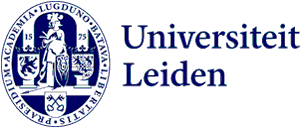
Large grant for research into Islamic non-conformism
In the coming years, Asghar Seyed Gohrab receives an advanced European Research Council grant of two and a half million euros to spend on his research into non-conformism in Islam. ‘Hopefully I can use this to contribute something to society, to pass something on to future generations.’
Seyed Gohrab is beaming thanks to the grant. ‘It's fantastic that instruments like these exist. Previously, I already received a Veni and a Vidi grant from NWO. Grants like this give you the opportunity to spread your wings, especially now that universities don't always receive a lot of money.’
Bold questions
With the new grant, Seyed Gohrab can not only spread his own wings. He can also use it to hire a number of PhD students and three postdocs. ‘We are going to study non-conformist movements in Islam. People often say that Islam has no self-reflection. That is simply not true. On the contrary, bold questions are often asked from within Islam. How is God righteous? Then why is there so much injustice in the world?'
From Balkan to Bengals
This questioning of Islam has taken place in all kinds of movements and in all kinds of times. Seyed Gohrab plans to map an area from the Balkans to present-day Bangladesh over a time period of one thousand years, together with his team, starting with the movement of the wise madmen from the ninth century. ‘Those “vagabonds” questioned religious hierarchy. According to them, the display of outward piety, for example long beards, was hypocrisy. They thought that these outward appearances existed to show others how pious you are. Therefore, in order to provoke religious people, they shaved off all of their facial hair, drank wine, sometimes they even walked the streets naked. In this way they wanted to show that piety was something between themselves and God.’
Such non-conformist movements spread rapidly starting in the ninth century. A lot of their material has also been passed on through poetry. ‘The ambiguity of this poetry gives room to try out different interpretations. An example of this is the poet Rumi, who is also popular amongst Hollywood stars nowadays. He wrote, for example, that it is better to sit in a tavern drinking wine than to go to Mecca. Many people, including Muslims, take these poems out of their Islamic context. They do not know the tradition and think that Rumi literally prefers the tavern to the mosque. Actually, he wants to emphasise that the Quran should be read in a different way. In doing so he is not distancing himself from Islam, quite the contrary.’
‘Blessing to do this’
Currently, these non-conformist ideas appeal to a lot of people, Seyed Gohrab states. ‘In the coming years, I want to find out how these mystics' initially peripheral ideas about the internalisation of faith reached the centre of Islam.’
With this approach, he hopes to do good. ‘I lived through the Iran-Iraq war and now I am here. It feels like a blessing to be able to do this. I hope that I can use this research to contribute something to society, to leave something beautiful behind for other generations. Hopefully it will help to create more understanding and to prevent conflicts.’
Asghar Seyed Gohrab is a Senior University Lecturer at the Leiden University Institute for Area Studies. He also works as a Professor Iranian and Persian Studies at Utrecht University.
